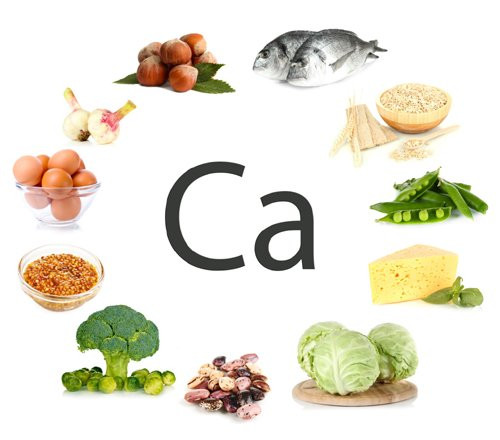Mistakes when supplementing calcium
Eating shrimp shells because you think they contain a lot of calcium, relying only on natural calcium in food, making the wrong choice or taking too much calcium can not only cause the body to not have enough essential calcium but also put a burden on the digestive system.
In recent times, some diseases caused by calcium deficiency and the need for calcium supplementation have been better recognized in the community. However, many people still do not have full awareness of calcium supplementation methods for the body, leading to low absorption efficiency and even causing some unfortunate consequences.
Rely only on natural calcium
Many people think that just relying on natural calcium sources from the body is enough, in which many people consider milk a miracle drug when the body lacks calcium.
In fact, nutritionists have pointed out that daily food only provides 20% - 30% of the body's calcium needs.
At the seminar "Effective and safe calcium supplementation" held at the Institute of Nutrition on May 29, 2014, Japanese experts stated that the body's calcium absorption rate decreases with age. Accordingly, in people aged 20-30, the calcium absorption rate accounts for 30% of the calcium from the diet, in people aged 40-50 it is 20% and people over 60 years old can only absorb 10% of the calcium provided through the diet. That explains why, despite having a full diet, we still lack calcium and osteoporosis increases significantly in the elderly.
Misconceptions
Many people have misconceptions about foods containing calcium, for example, eating shrimp shells because they think shrimp shells are rich in calcium. In fact, shrimp shells are made of chitin[U1], not calcium, so eating a lot of them can cause constipation. They can also combine foods rich in calcium, such as seafood with tofu, sweet potatoes, and spinach. As a result, the phytic acid in these foods will cause calcium to precipitate into salt, making it impossible for the body to absorb...
|
Only supplement calcium when deficient.
Only supplementing calcium when lacking is a misconception of most people. Normally, many people pay a lot of attention to supplementing protein and vitamins, but are lazy to supplement calcium and only start using it when the body "protests". For example, children are growing up with weak bones due to calcium deficiency, the elderly have osteoporosis and then take it, or pregnant women only take calcium when prescribed by a doctor.
Meanwhile, 95% of our bones, teeth, and nails are made up of calcium and are lost daily through sweat and urine. And with age, calcium loss occurs without compensation, leading to osteoporosis, bone loss, and bone loss.
|
Supplement overdose
Choosing the wrong calcium supplement, overdosing leading to constipation that the body cannot fully absorb is also one of the common mistakes.
Many mothers, wanting their children to grow taller, have abused calcium supplements without knowing that it is harmful to their children. Depending on the degree of excess calcium, it can cause complications ranging from mild to severe, such as loss of appetite, constipation, nausea, fatigue, muscle pain, bone pain, frequent urination, and dehydration. If there is too much, the amount of calcium that is not fully absorbed can accumulate, causing kidney calcification, gallstones, reduced kidney function, reduced absorption of other minerals such as iron, zinc, magnesium, phosphorus, etc., increasing blood calcium.
Therefore, recognizing the correct signs and supplementing calcium properly will help keep the body healthy.




.png)
.jpg)


.jpg)
